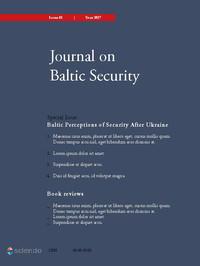Volume 3, Issue 2 (2017), December 2017

Order by:
Pub. online: 20 Dec 2017
Type: Editorial
 Open Access
Open Access
Pub. online: 21 Dec 2017
Type: Research Article
 Open Access
Open Access
Abstract
Pub. online: 21 Dec 2017
Type: Research Article
 Open Access
Open Access
Abstract
Pub. online: 21 Dec 2017
Type: Research Article
 Open Access
Open Access
Abstract
Pub. online: 21 Dec 2017
Type: Research Article
 Open Access
Open Access
Abstract